MercoPress. South Atlantic News Agency
Tag: Selic interest rate
-
Monday, December 1st 2025 - 21:30 UTC
Brazil's Central Bank lowers inflation forecast for 2025
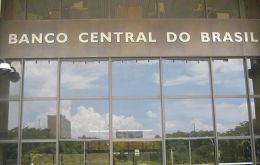
Brazil's Broad National Consumer Price Index (IPCA) projections for this year have slipped from 4.45% to 4.43%, according to the latest issue of the weekly Focus Bulletin (FB) released by the Central Bank (BCB) on Monday. The IPCA is tantamount to the country's inflation index.
-
Thursday, June 19th 2025 - 09:49 UTC
Brazil: Selic rate upped for the seventh straight time
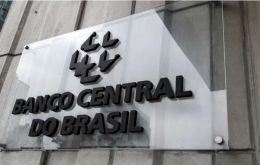
Despite falling inflation, Brazil's Central Bank (BCB) raised the Selic interest rate on Wednesday by 0.25 percentage points to 15%, its zenith since 2006, citing ongoing economic uncertainty. The unanimous Monetary Policy Committee's (Copom) move surprised local markets, who anticipated it would stay at 14.75%.
-
Sunday, February 9th 2025 - 19:38 UTC
Brazil’s interest rate raised to 13.25% and further increases forecasted
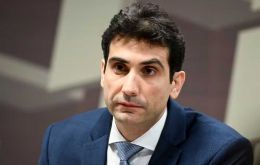
Brazil's central bank raised its benchmark interest rate, Selic, by 100 basis points for the second straight meeting last Wednesday and anticipated another similar hike in March, concerned about mounting inflationary pressures.
-
Saturday, January 4th 2025 - 00:32 UTC
Third-largest ever outflow of dollars recorded in Brazil
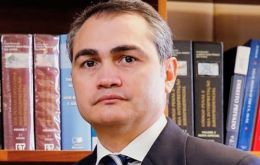
A total of US$ 15.918 billion fled Brazil in 2024, which represented the third-largest annual leakage ever behind consecutive negative balances in 2019 (US$ 44.768 billion) and 2020 (US$ 27.923 billion), the Central Bank (BCB) reported this week. Last year's financial flow was negative by US$84.396 billion after outflows (US$ 674.385 billion) outpaced inflows (US$ 589.989 billion).
-
Monday, December 30th 2024 - 23:13 UTC
Brazil's financial markets adjust 2025 projections for the worse

Monday's issue of Brazil's Central Bank's (BCB) Focus Bulletin twitched last week's 2025 slightly for the worse, with higher inflation and a smaller Gross Domestic Product (GDP), Agencia Brasil reported. The study showed that the Broad Consumer Price Index (IPCA) should end 2025 at 4.96% from the 4.86% forecast last week. It was the 11th adjustment to the inflation projection and the ninth to the exchange rate between the local real and the US dollar.
-
Thursday, March 21st 2024 - 09:41 UTC
Brazil's Copom further lowers Selic interest rate in line with market expectations

Brazil's Monetary Policy Committee (Copom) announced Wednesday that it was further cutting the economy's basic interest rate known as Selic by 0.5 percentage points to 10.75% per year, Agencia Brasil reported.
-
Wednesday, March 22nd 2023 - 10:35 UTC
Lula insists in criticizing central bank autonomy: current rate of 13,75% is “irresponsible”
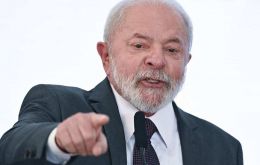
Brazilian President Luiz Inacio Lula da Silva criticized on Tuesday the country's central bank, saying that an interest rate of 13.75% - its current level - is “irresponsible,” adding he will continue to fight the current level to stimulate the economy.
-
Wednesday, October 13th 2021 - 15:16 UTC
Double digit inflation in Brazil spiked by increasing fuel and food costs
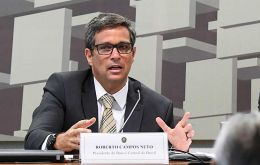
Brazilian market analysts raised their forecasts for inflation and the Selic key interest rate for 2022 as increasing fuel and food costs plus resurgent demand for services are spiking prices as the pandemic seems to be coming to an end.
-
Monday, December 16th 2019 - 09:50 UTC
Brazil's basic interest rate at an all time low of 4.50%
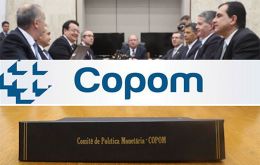
Brazil's central bank cut its benchmark Selic interest rate to an all-time low of 4.50% this week but indicated that with borrowing costs so low and economic growth starting to pick up, it may mark a pause in the easing cycle, if not the end.
-
Tuesday, October 29th 2019 - 07:36 UTC
Brazil, expectations of new lows for inflation and interest rates
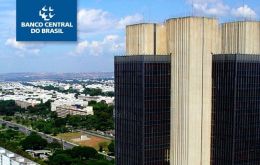
Brazilian inflation and interest rate expectations for next year have fallen to new lows, according to a central bank survey of economists published on Monday, strengthening the view that monetary policy will be loosened further in the months ahead.
